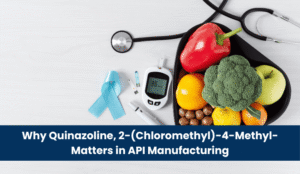What is Alogliptin Benzoate
Takeda Pharmaceutical Company’s wholly owned subsidiary, Takeda San Diego, Inc.,- an API manufacturing company discovered Alogliptin (also known as Nesina in the US and Vipidia in Europe) as an orally administered anti-diabetic drug in the DPP-4 inhibitor class in 2005. Alogliptin Benzoate does not reduce the risk of heart attacks and strokes. In 2005, Takeda acquired Syrrx (formerly Syrrx).
Like other members of this class, a gliptin causes little or no weight gain, exhibits low risk of hypoglycemia, and is relatively modest in its ability to lower glucose levels. Patients whose diabetes cannot be adequately controlled by metformin alone are commonly treated with alogliptin and other gliptins.
Alogliptin is compared with the other available DPP-4 inhibitors. In addition to this agent, monotherapy, sulfonylurea, pioglitazone, and insulin can be added to lower glucose levels. The potential adverse effects of alogliptin are summarized.
Use of Alogliptin Benzoate
When used with a proper diet and exercise program, Alogliptin Benzoate API can help people with type 2 diabetes control their blood sugar levels. High blood sugar can damage kidneys, cause blindness, and nerve damage, cause loss of limbs, and interfere with sexual function.
By controlling diabetes, you may also reduce your heart attack or stroke risk. Analogliptin increases incretin levels. The insulin release is stimulated by incretins, especially after eating, which helps control blood sugar. Your liver also produces less sugar when you take them.
How to use Alogliptin Benzoate
Before beginning treatment with alogliptin and every time you receive a refill, review the Medication Guide provided by your pharmacist. Your doctor or pharmacist can answer any questions you may have.
Usually, once a day, with or without food, take this medication by mouth as directed by your doctor.
Alogliptin Benzoate uses dependent on your medical condition and how you respond to treatment, and the dosage is determined. To get the most benefit from this medication, take it regularly. Take it every day at the same time to help you remember. Maintain a healthy diet, exercise, and medication regimen for managing diabetes.
Maintain a regular blood sugar check to your doctor’s instructions. Keep track of the results, and let your doctor know what they are. You should tell your doctor if you often have high or low blood sugar levels. Diabetes medications, exercise programs, and diets may need to be adjusted by your doctor.
Side Effects of Alogliptin Benzoate
There are serious Alogliptin Benzoate Side Effects.
- Skin blisters that are large and hard
- Rashes, blisters, and peeling of the skin
- A pounding heartbeat, shaking, trembling, sweating, faintness, hunger, and confusion are all symptoms of an anxiety attack.
- This product can cause allergic reactions, such as hives, tingling in your mouth or throat, chest tightness, and difficulty breathing.
- The symptoms may be present: dark urine, pale stool, stomach pain, yellow skin, or eyes.
- Severe joint pains
- Symptoms include rapid weight gain, swelling of the hands, ankles, and feet, difficulty breathing, and fatigue.
- Changes in your urination frequency or amount
- Itching, nausea, vomiting, fever, and lightheadedness are all symptoms of sudden and severe stomach pain.
Precautions of Alogliptin Benzoate
- In case you are allergic to alogliptin, any other DPP-4 inhibitors or similar pharmaceutical raw materials, such as linagliptin (Tradjenta, in Glyxambi, in Jentadueto), saxagliptin (Onglyza, in Kombiglyze), sitagliptin (Januvia, in Janumet), or any other medication, or any of the ingredients in alogliptin tablets, let your doctor and pharmacist know. The ingredients of your medication can be found in the Medication Guide or by asking your pharmacist.
- Medication doses may need to be adjusted, or your doctor may monitor side effects carefully. You should inform your doctor and pharmacist if you take prescription and non-prescription medications, vitamins, and nutritional supplements. Diabetes medications such as insulin should also be mentioned.
- In case of alcohol abuse, tell your doctor if you suffer from pancreatitis (pancreatic swelling), gallstones, heart failure, kidney disease, or liver disease.
- Pregnant or planning to become pregnant? Tell your doctor. Your doctor should be contacted if you become pregnant while taking alogliptin.
- Alogliptin should be mentioned to the doctor or dentist if you are having surgery, including dental surgery.
- When you get injured or develop a fever or infection, ask your doctor what you should do. These conditions may affect your blood sugar and how much alogliptin you need.
Alogliptin Benzoate: Medicine to Treat Type 2 Diabetes
Type 2 Diabetes is a condition in which blood sugar levels are too high due to an inability to produce or use insulin normally. Alogliptin belongs to the dipeptidyl peptidase-4 (DPP-4) inhibitor class of medications. Analogliptin is used along with diet and exercise to lower blood sugar levels.
As a result, it increases the amount of insulin in the body. In the case of type 1 diabetes (where the body cannot produce insulin, thus producing too much sugar in the blood) and diabetic ketoacidosis (which arises when high blood sugar levels are not treated), alogliptin cannot be used.
Heart disease, stroke, kidney problems, nerve damage, and eye problems can occur over time in people with diabetes and high blood sugar. Diabetes can be managed and improved through medication(s), lifestyle changes (e.g., diet, exercise, quitting smoking), and regular blood sugar checks. Besides reducing your risk of heart attack, stroke, kidney failure, nerve damage (numbness or coldness in the legs or feet; decreased sexual ability in men and women), eye problems, including changes or loss of vision, or gum disease, this therapy may also reduce your risk of heart attack, stroke, or other complications of diabetes. The best way to manage your diabetes will be discussed with your doctor and other healthcare providers.
Conclusion
This medication is sometimes available under several brands and in several forms by active pharma ingredient manufacturers. In addition, these medications may not be appropriate for all of the conditions discussed in this article.
Besides those listed in these drug information articles, your doctor may have prescribed this medication for other conditions. Consult your doctor if you are unsure why you are taking this medication or have doubts about its efficacy. Your doctor should be able to guide you toward a better course of treatment.
Despite having the same symptoms as you, do not give this medication to anyone else. When not prescribed by a doctor, this medication can cause serious implications.





